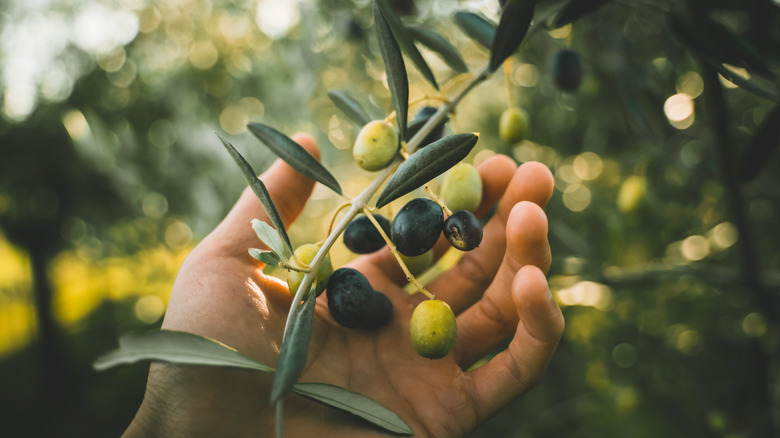Olive Trees Live A Lot Longer Than You May Think
Ah, the marvelous olive! Olives and their byproducts — particularly olive oil — have been a part of the human diet for millennia, with culinary and medicinal roots that trace back to the ancient Mediterranean (per ThoughtCo). Olives — whether enjoyed in the form of the whole fruit as a snack, or as a pressed oil for drizzling, dipping, or cooking — are often considered to be superfoods due to their high contents of essential nutrients, including vitamin E, antioxidants, calcium, and healthy fats, per Healthline.
However, olives have cultural significance beyond simply providing edible sustenance and adding tender, savory, briny, and occasionally mellow flavors to a wide variety of dishes (and drinks such as dirty martinis). In many cultures, especially for those of Greek heritage, olive branches are symbolic of peace, victory, and friendship, according to Lucini Italia. Perhaps one of the most mesmerizing attributes of olive trees, along with their allegorical and literal fruitfulness, is their longevity.
Olive trees live for hundreds, sometimes thousands, of years
Researchers have discovered that olive trees have been cultivated for thousands of years, per Live Science. It has been estimated that, based on several genetic analyses, the first domesticated olives were grown in the eastern Mediterranean region as early as 8,000 years ago. Talk about a tried and true crop! Things get even more fascinating: According to SFGate, the average life span of an olive tree is 500 years. And some olive trees have been able to reach triple that age — living to be approximately 1,500 years old.
So, how do olive trees seemingly withstand the test of time? As The Science Times notes, these relatively low-maintenance plants require plenty of warmth, which is why they are able to thrive in the Mediterranean climate. By the time an olive tree reaches about 40 years old, it can produce a sufficient amount of olive fruit, which can then be harvested and enjoyed by consumers. Tip: Next time your neighbor brags about how old the trees in their yard are, feel free to hit 'em with this fun nibble of trivia.

